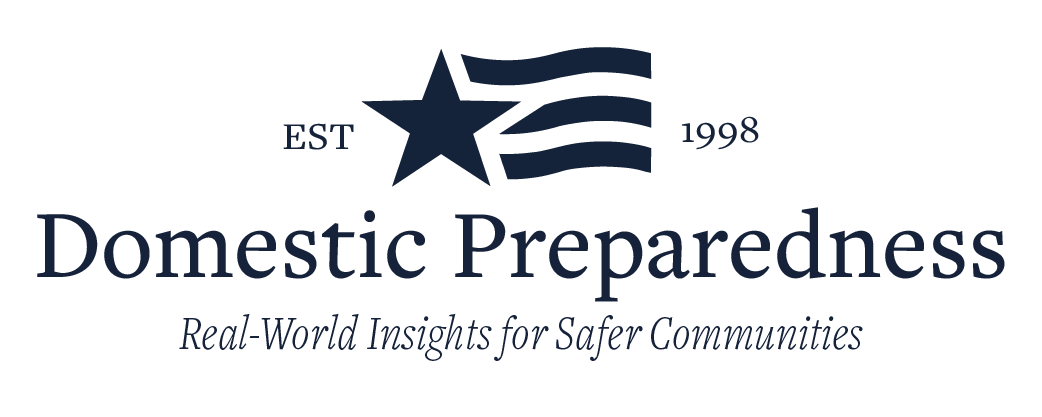The United States abolished slavery nearly 150 years ago. However, human exploitation through sex and forced labor remains a growing human rights violation and national security issue. Human trafficking is not prejudicial to nationality, age, gender, or socioeconomic status and is closer to home than most would like to consider. The exploitation and violation of human rights knows no boundaries and requires preparedness and response efforts from every country, every state, and every city.
Human trafficking is an epidemic that, according to Polaris, has affected some 40 million people globally. In the United States, it is happening to both U.S. citizens and non-U.S. citizens at equal rates – and victims are getting younger. According to the State Department’s Trafficking in Persons report, 76% of trafficking victims are female – with underage females comprising 17% of that total figure. The National Runaway Switchboard estimated that 1.6 to 2.8 million runaway teens are in the United States – females representing 55%. In 2016, approximately one in six of these runaways were likely human trafficking victims according to a report issued by the National Center of Missing and Exploited Children.
Big Business & Growing Numbers
Human trafficking and human smuggling are not interchangeable:
- Human smuggling is the movement of a person across a border.
- Human trafficking is the exploitation of that person through means of force, fraud, coercion, or violence.
This national/transnational crime is rapidly subjecting victims into forced labor, sexual exploitation, debt bondage, sexual slavery, organ harvesting, and much more. Although human trafficking is illegal, it continues to be problematic and under-identified.
Polaris indicates that a record 8,759 human trafficking helpline cases were received in 2017 with an increase in percentage of hotline cases increasing 13% from 2016. There has been an 850% increase in hotline calls since its inception over the last decade that Polaris has operated the National Human Trafficking Hotline – with Florida, California, Ohio, and Texas having the highest number of reported cases in recent years.
The U.S. State Department and the International Labor Organization estimate that human trafficking is a $150 billion-a-year global business. According to the Harvard Law Review, it is quickly exceeding other high-profit crimes such as narcotics and firearms. Before 2000, laws in the United States were simply inadequate to deal with human trafficking. Protecting and assisting victims with aftercare programs – rescue, reform, and restore – were equally inadequate. Despite legislation to combat trafficking evolving since 2000, human trafficking remains a persistent problem, the inconsistent enforcement of anti-trafficking measures raise concern, and public services for rehabilitation are still lacking. More is needed to address not only the enforcement of human trafficking laws, but the preventative and rehabilitative component of those subjected to modern-day slavery.
International Response Efforts
Despite trafficking expansion over the past century, it was not until 2000 that the first agreement (the United Nations Protocol to Prevent, Suppress and Punish Trafficking in Persons, Especially Women and Children) was drafted recognizing modern-day slavery and expanding the characterization to consist of forced labor migration and organ harvesting. Responding to the trafficking increase, the U.S. Congress ratified the Victims of Trafficking and Violence Protection Act (TVPA) in 2000. Regardless, the effectiveness of laws enacted to combat trafficking today is unknown mainly because the crime goes unidentified or is prosecuted or minimized under other laws such prostitution. The TVPA addresses human trafficking crimes and enhances the existing crimes of peonage, involuntary servitude, and slavery. TVPA additionally protects victims and helps re-establish their lives through rehabilitation efforts.
Due to enhanced legislation of the TVPA, previous cases of trafficking most likely would have been charged using weak and ineffective state statutes versus enhanced federal statutes enacted with TVPA legislation. Because priorities shift, some victims choose not to cooperate with law enforcement. Although state laws may be used to prosecute trafficking cases, laws prohibiting promotion of prostitution are normally weak and legislative language portrays trafficked victims as willing participants. The principal issue with current state laws is that they do not provide adequate protection for trafficking victims from additional prosecution – for example, under current state prostitution offenses, they could still be charged. Additionally, unauthorized immigrant victims – though afforded immigration protection through T Visas and U Visas, and Continued Presence – are potentially still hesitant to work with law enforcement for fear of deportation. Studies have yet to address the number of unauthorized immigrant victims that might have come forward had they had knowledge and confidence in U.S. Citizenship and Immigration Services efforts to assist them in prosecuting traffickers.
Prevention Measures
Media coverage continues to expand on stories of young women and children marketed and forced into commercial sex work in other countries. However, trafficking in the United States has traditionally received little attention until recently. Newly adopted federal legislation produces challenges for law enforcement and prosecution primarily due to the newness or nature of the crime, with no court precedence set. Because of this, several states have amended previous state laws to better address the issue locally – for example, the Florida legislature created the Statewide Human Trafficking Council in 2014.
Several causative factors of under-identification stem from lack of knowledge and awareness about the topic. Typically, victims have been treated as willing participants, with those illegally in the United States being deported. Raising awareness about human trafficking signs can be the most significant part of a prevention strategy. Globally, a critical prevention measure that nonprofits and governments have enacted and utilized has been awareness training. However, many trafficking victims are unwilling to cooperate out of fear of law enforcement and deportation, which makes identification and rehabilitation efforts difficult.
Ironically, with this lack of cooperation, few human trafficking prevalence studies have been conducted. Because there is a hidden nature regarding trafficking, all such studies rely on extrapolated data from other known sources. As a result, the exact magnitude of the problem globally, nationally, and within individual states remains a known unknown. In 2013, in an effort to address human trafficking, the U.S. government established the Federal Strategic Action Plan on Services for Victims of Human Trafficking in the United States 2013-2017, which focuses on four main goals:
- Align efforts of agencies;
- Improve understanding and awareness of the problem;
- Increase access to rehabilitative services; and
- Improve outcomes for victims.
In support of the Federal Strategic Action Plan – and in an effort to collaborate organizations addressing the issue – the Department of Homeland Security created the Blue Campaign that enforced and supported efforts to combat trafficking. The campaign creates a coalition or task force comprised of government and nongovernmental agencies, as well as private organizations and law enforcement, “to protect the basic right of freedom and to bring those who exploit human lives to justice.”
In support for the Blue Campaign, on 21 June 2017, Senator Orrin Hatch (Utah) introduced the Public-Private Partnership Advisory Council to End Human Trafficking Act of 2017, which established a public-private partnership and created the first ever Public-Private Partnership Advisory Council extrapolating knowledge and experience from government agencies and nonprofits to combat trafficking. The council serves as a single point of contact for program ideas and anti-trafficking efforts. It is comprised of 14 members from nongovernment agencies with extensive experience in anti-human trafficking, rehabilitation, and aftercare programs. Additionally, the same month that Hatch’s bill was introduced, U.S. Senator Bob Corker (Tennessee) introduced the Abolish Human Trafficking Act and the Trafficking Victims Protection Act of 2017. These bills reinforce existing programs, provide additional resources to law enforcement, and enhance rehabilitative efforts for survivors of human trafficking.
A State-Level Call to Action
Over 50 new bills have been presented before U.S. Congress since January 2017 either introducing new legislation or addressing current legislation related to combatting human trafficking. Although federal laws have been enhanced, without a robust change to state laws and actions in addressing trafficking, federal government legislation will remain the primary authority in addressing trafficking crimes.
Federal laws enable law enforcement to target larger trafficking rings, but smaller trafficking networks in states typically go unaddressed either due to under-identification or inadequate state enforcement. Since smaller trafficking rings would likely be more identifiable to local law enforcement agencies, enhancing weak state laws would enable officials at that level to effectively address trafficking concerns. States with weak trafficking laws have a duty to implement more comprehensive laws that hold traffickers responsible and reinforce enhanced sentences for those convicted.
Trafficked individuals are victims – not criminals. Therefore, state legislation should strengthen tools to aid in prosecution, enact measures that protect and support victims, and enhance laws that are more punitive in nature. The TVPA is perhaps the most important piece of legislative law passed at tackling human trafficking because it demonstrates more punitive damages by implementing a 15-year to life sentence for those convicted. Unfortunately, the TVPA applies only to federal cases. With that in mind, all states may have anti-trafficking laws, but not all laws are created equal.
Although all states have commercial sexual exploitation laws, most have not made it a priority to adopt strong penalties against trafficking. For example, Arkansas state law focuses punitive measures on the “John” rather than on the one who “forced and coerced” the person. The punishment currently for commercial sexual exploitation in Arkansas is a Class B misdemeanor for the first offense. Moreover, Montana has much more lenient jail sentences for traffickers compared to the TVPA – as the lowermost federal sentence is equal to the high-end state sentence in Montana.
According to Polaris, Florida ranks among the states with the toughest trafficking laws behind Delaware and New Jersey. Florida also ranks in the top tier states, which meet the criteria of laws critical to combating trafficking, punishing traffickers, and supporting survivors. In the United States, Florida ranks as the third busiest area for commercial sex trafficking. In 2015, Florida enacted new legislation focused on increasing penalties for human trafficking perpetrators, as well as providing additional protections for and protecting the personal identities of victims.
In an effort to end human trafficking, much more needs to be accomplished locally in states to complement the TVPA. Following the example of top tier states like Florida, Delaware, and New Jersey, enhancing state laws would enable prosecutors to better target traffickers. Additionally, measures are needed to protect victims of trafficking through measures that allow those who have been illegally trafficked into the country safe harbor and permanent residence, so they will not be reluctant to come forward and testify against traffickers. Moreover, trafficking awareness efforts should be enacted nationally in an effort to help identify potential trafficking victims.

Richard Schoeberl
Richard Schoeberl, Ph.D., has over 25 years of law enforcement experience, including the Federal Bureau of Investigation (FBI) and the National Counterterrorism Center (NCTC). He has served in a variety of positions throughout his career, ranging from a supervisory special agent at the FBI’s headquarters in Washington, DC, to unit chief of the International Terrorism Operations Section at the NCTC’s headquarters in Langley, Virginia. Before these organizations, he worked as a special agent investigating violent crime, human trafficking, international terrorism, and organized crime. He was also assigned numerous collateral duties during his FBI tour – including as a certified instructor and member of the agency’s SWAT program. In addition to the FBI and NCTC, he is an author and has served as a media contributor for Fox News, CNN, PBS, NPR, Al-Jazeera Television, Al Arabiva Television, Al Hurra, and Sky News in Europe. Additionally, he has authored numerous scholarly articles, serves as a peer mentor with the Police Executive Research Forum, is currently a professor of Criminology and Homeland Security at the University of Tennessee-Southern, and works with Hope for Justice – a global nonprofit combatting human trafficking.
-
Richard Schoeberlhttps://domesticpreparedness.com/author/richard-schoeberl
-
Richard Schoeberlhttps://domesticpreparedness.com/author/richard-schoeberl
-
Richard Schoeberlhttps://domesticpreparedness.com/author/richard-schoeberl
-
Richard Schoeberlhttps://domesticpreparedness.com/author/richard-schoeberl

Benjamin Nivens
Benjamin Nivens has over 20 years of law enforcement experience serving as a Naval Criminal Investigative Service (NCIS) agent and a Tennessee law enforcement officer. Currently, he is an investigator and training instructor for Hope for Justice, a global nonprofit that investigates human trafficking and provides training to police and civilian entities. Additionally, he is a certified human trafficking investigator.
-
This author does not have any more posts.






